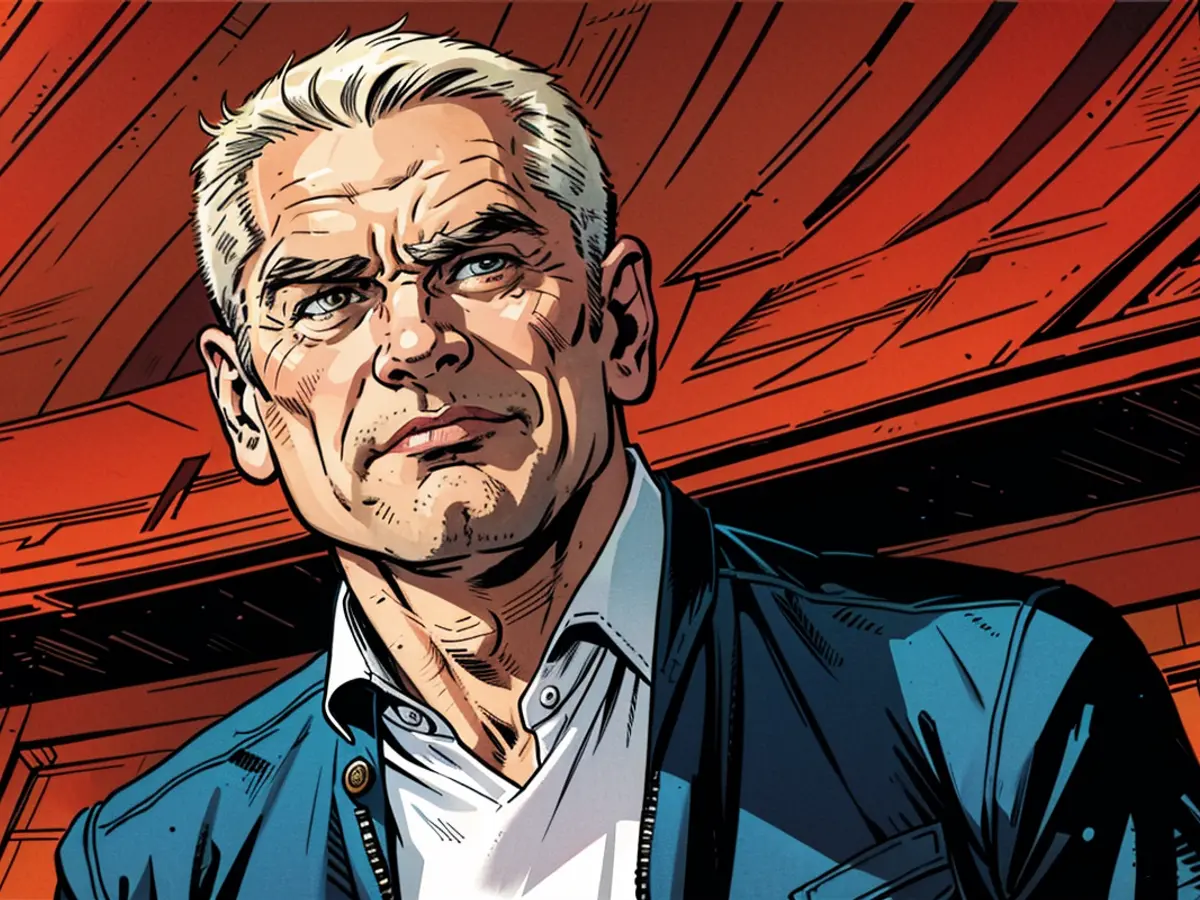The traffic light's time is up, it's election season.
Different from the federal election, all governing parties are achieving new records in the European election. Nevertheless, the extremes are gaining more strength. The traffic light coalition won't survive because the federal chancellor, Olaf Scholz, has got to serve the country one final time and pave the way for upcoming elections.
Voters' surveys don't determine who'll win elections, that's what unpopular government parties would like you to believe. After announcing the results of the European election, the traffic light alliance - SPD, Greens, and FDP - is predicted to have the same voting power as the Union with approximately 30% of votes. These government parties are anticipated to get around 20% less votes than in the past federal election. The SPD's popularity has significantly decreased by nearly 12% due to their campaigns with chancellor Olaf Scholz. The fringe parties are stronger than they've been in the 75-year history of the Federal Republic. The government alliance doesn't have a valid reason to continue for almost two more years of debates and disagreements. There are several refutations, though.
The most significant point: The country is becoming more fragmented. The AfD, an extreme-right party, is now the second most influential political group. Both of its top candidates have connections to Russia and are being investigated for corruption. Eastern Germany sees this party as the leading force, well beyond all combined traffic light parties. If these parties execute a proficient election campaign, what could they achieve? The coalition can't be blamed solely for the rise of these radical forces. However, they haven't stopped them either.
In terms of policies, the traffic light coalition is penniless. Although they've managed to handle the energy crisis since Russia's assault on Ukraine, the trio will run out of ideas for the involved calculations for the budget in 2025. The coalition lacks a clear plan to stimulate the lagging economy and to continue supporting Ukraine practicably. Moreover, they can't agree on climate and social issues. There's no significant task this administration still has on their agenda. Simply sticking around until the general federal election isn't ideal - and if it is, it might even strengthen populists and extremists.
We can witness the worthlessness of the traffic light coalition in their long-promised "Less conflict" mantra. For the past two years, leaders of the SPD, Greens, and FDP have guaranteed more harmony. They've never kept their promises. On the day of the European election results declarations, the SPD's chairperson, Lars Klingbeil, and the FDP's leader, Christian Lindner, spoke of in-depth negotiations in the approaching budget planning for 2025. Their tones turn rougher in the once ambitious coalition. They're negating the political culture of this land, which has been a cornerstone of Germany for decades.
With the Union, the winning comeback of the CDU's leader, Friedrich Merz, there's a government-ready party in the center, ready to handle the challenges. The SPD possesses a federal politician, Boris Pistorius, who the citizens like and may like to see as chancellor - if he were to run for this position. The FDP scored around 5% of votes, so they can easily bear the risk of a general election.
And now that they've experienced all this in the past few months, the Greens need to reconsider whether remaining in the coalition will hurt climate campaigns more than help. They've undoubtedly been unpopular for the past two and a half years since Habeck and Co. have been in charge.
If Olaf Scholz acknowledges the trust crisis, the traffic light factions could voluntarily break up their alliance government and pave the way for fresh elections. It would be the great finale of the chancellor's service to the country, even with the personal heartbreak. A misery of democracy following endless losing trust in the ruling parties is far more serious.
Read also:
The SPD, a part of the traffic light coalition, has seen a significant decrease in popularity, losing nearly 12% in the European elections compared to the federal election 2021. The CSU and CDU, representing the Union, are also expected to perform well in the upcoming federal election 2025, with potential leaders like Friedrich Merz and Boris Pistorius. The AfD, an extreme-right party, has gained influence, becoming the second most powerful political group and receiving support, particularly in Eastern Germany. Olaf Scholz, the federal chancellor, is expected to serve his country one last time before the federal election 2025, potentially paving the way for new elections or a new government formation. The SPD, Greens, and FDP, collectively known as the traffic light alliance, are predicted to have the same voting power as the Union in the European elections. However, they are forecasted to receive around 20% less votes than in the past federal election. Sahra Wagenknecht, from the left-wing party BSW, has criticized the traffic light coalition's policies and performance. The FDP, another coalition partner, scored around 5% of votes in the European elections, which could mean they can handle the risk of a general election. The Green party, another member of the traffic light coalition, may need to reconsider their alliance if it is negatively impacting their climate campaigns.








